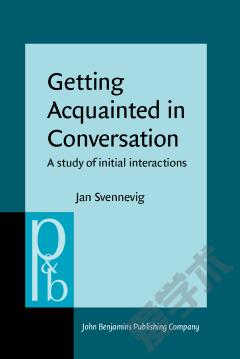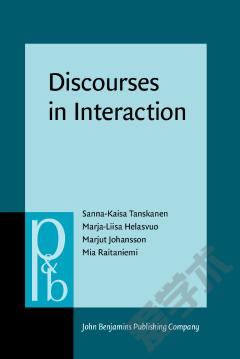Getting Acquainted in Conversation. A study of initial interactions.
What makes a ‘getting acquainted’ a recognizable conversational activity, and how are interpersonal relationships established in a first conversation? This book presents a theoretical framework for the study of relationship management in conversation and an empirical study of a corpus of initial interactions. It provides detailed descriptions of the sequential resources unacquainted interlocutors use in order to:– generate self-presentation– introduce topics– establish common contextual resourcesIt is argued that these sequential patterns embody conventionalized procedures for establishing an interpersonal relationship involving some degree of:– solidarity (mutual rights and obligations)– familiarity (mutual knowledge of personal background)– mutual affect (emotional commitment)The sequential analysis is based on a conversation analytic approach, while the interpretive framework consists of pragmatic theories of politeness, conversational style and common ground.
{{comment.content}}








 京公网安备 11010802027623号
京公网安备 11010802027623号